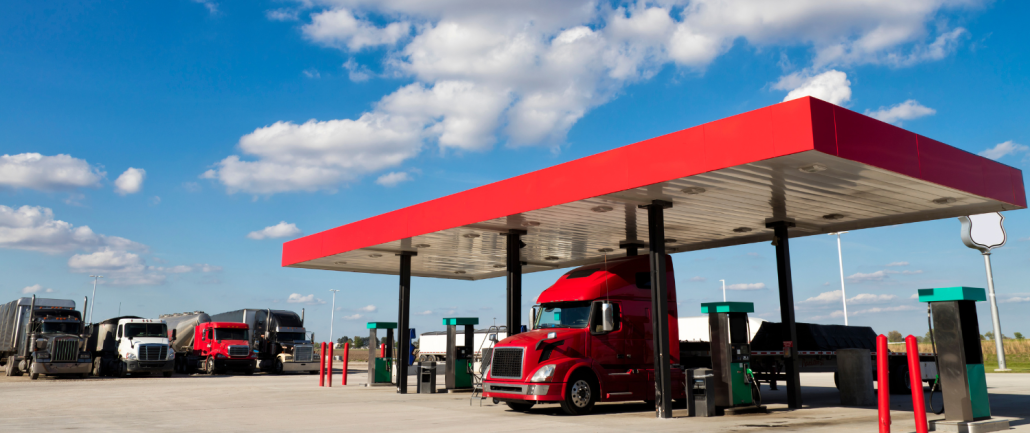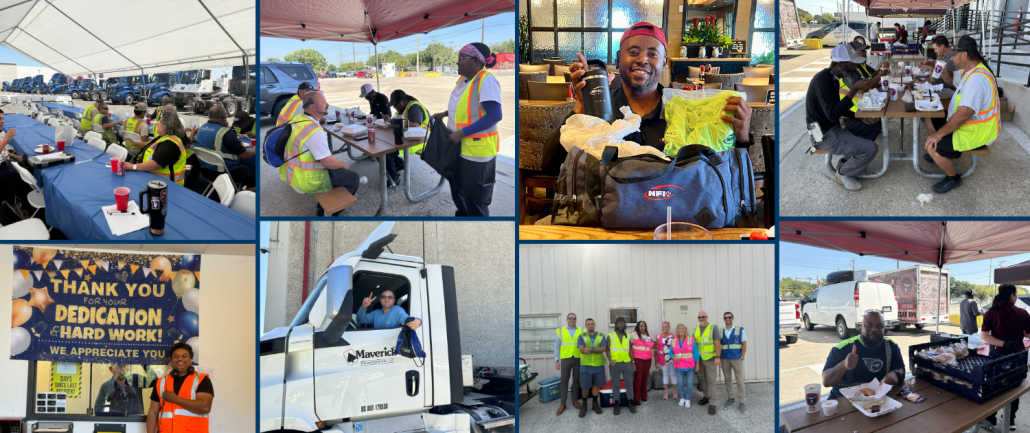 Life on the road may come with freedom and independence, but it also brings challenges that can test even the most experienced drivers.
Life on the road may come with freedom and independence, but it also brings challenges that can test even the most experienced drivers.
Traffic delays, unsafe motorists, long hours, and pressure to stay on schedule can all add up, leading to frustration that affects both mental well-being and safety. Understanding what causes stress on the road and learning how to manage it can help drivers protect their health, improve focus, and enjoy the job more.
Keep reading for practical strategies to manage frustration, reduce road stress, and stay focused behind the wheel in 2025.
Common Causes of Frustration for Truck Drivers
Frustration rarely comes from one single issue. More often, it builds over time as smaller stressors stack up throughout a shift or busy time in your life.
Traffic is one of the biggest contributors for drivers. Congestion, construction zones, and unpredictable accidents can slow progress and make drivers feel stuck, especially when delivery windows are tight. When you have little control over delays, your stress can escalate quickly.
Other motorists also play a large role. Unsafe driving behaviors, such as cutting off trucks, sudden braking, speeding, or ignoring blind spots can feel disrespectful and dangerous. Repeated exposure to these situations can create tension and anger, even for the calmest drivers.
Schedules and time pressure are another major factor. Hours of service regulations, appointment times, and unexpected delays can make drivers feel rushed or worried about running out of drive time. When the clock is always in the back of your mind, patience becomes harder to maintain on the road.
Physical discomfort can add to frustration as well. Fatigue, hunger, dehydration, and muscle stiffness often make everyday challenges feel even more irritating than they normally would.
How Frustration Can Turn Into Road Rage
Unchecked frustration can sometimes turn into road rage, which is more than just feeling annoyed. Road rage includes aggressive behaviors such as yelling, tailgating, excessive horn use, or risky driving decisions made in anger.
For truck drivers, road rage is especially dangerous. A momentary lapse in judgment can have serious consequences due to vehicle size and stopping distance. Even non-physical expressions of anger can raise heart rate and reduce focus, increasing the risk of mistakes on the road.
Recognizing early signs of escalating frustration is key. These may include clenched jaw, shallow breathing, racing thoughts, or replaying negative interactions in your head. Catching stress early makes it easier to manage before it becomes a safety issue.
Practical Strategies to Manage Stress on the Road
Managing frustration does not mean ignoring it, however. It just means responding in ways that keep you safe and in control.
One of the most effective tools is planning with flexibility. Building buffer time into routes, when possible, helps reduce anxiety around delays. While not every situation is predictable, expecting some disruptions can soften their emotional impact.
Breathing techniques can also make a real difference. Taking slow, deep breaths during stressful moments helps calm the nervous system and refocus attention. Even a few intentional breaths at a red light or rest stop can reset your mindset.
Taking regular breaks is also essential. Short stops to stretch, hydrate, or eat can improve both physical comfort and mental clarity. When you feel your patience thinning, it may be time to pull over safely and reset.
Music, podcasts, or audiobooks can provide a positive distraction. Choosing calming or engaging audio content can shift focus away from frustration and help maintain a steady mood during long stretches of driving.
Reframing the Situation Mentally
Mindset plays a powerful role in how stress is experienced. While you can’t control traffic or other motorists, you can control how you interpret these situations.
Reminding yourself that delays are part of the job can reduce personal frustration. Traffic is not happening to you specifically, and unsafe drivers are not worth risking your safety or livelihood over.
Focusing on professionalism can also help. Staying calm and steady under pressure is a real skill, something you can even talk about in future interviews.
Building Long Term Stress Resilience
Managing frustration is not just about these in-the-moment techniques. Long term habits can have a big impact as well.
Getting adequate rest whenever possible is proven to improve emotional regulation. Quality sleep helps the brain process stress more effectively and reduces irritability all day long.
Healthy routines also play a role. Balanced meals, hydration, and light physical activity support overall well-being. Even simple habits like stretching during fuel stops can improve mood and reduce tension.
Communication with dispatch or management is another important factor. When drivers feel supported and heard, stress levels often decrease. Asking questions, setting realistic expectations, and reporting issues early can prevent frustration from building silently.
Wondering about other ways to stay ahead of the curve in the transportation industry in 2025? Be sure to check out more posts on our blog and connect with us on social media!

 Each December, communities across the United States come together for a powerful and heartfelt tradition:
Each December, communities across the United States come together for a powerful and heartfelt tradition:  The holidays are a time for reflection, tradition, and gathering with the people who matter most. However, celebrating can look different for drivers who spend the season on the road.
The holidays are a time for reflection, tradition, and gathering with the people who matter most. However, celebrating can look different for drivers who spend the season on the road. The holiday season brings many traditions each year, from family gatherings to festive meals and crowded retail stores. Behind all of this activity is the dedicated workforce of truck drivers who make the busiest time of year possible.
The holiday season brings many traditions each year, from family gatherings to festive meals and crowded retail stores. Behind all of this activity is the dedicated workforce of truck drivers who make the busiest time of year possible.  Starting your career as a truck driver can be exciting and rewarding, but like any new profession, it comes with a learning curve.
Starting your career as a truck driver can be exciting and rewarding, but like any new profession, it comes with a learning curve.  When you spend most of your time behind the wheel, a good app can make the difference between a smooth trip and a stressful one.
When you spend most of your time behind the wheel, a good app can make the difference between a smooth trip and a stressful one.  For professional drivers, a truck cab is far more than just a workspace. It can be a living area, sleeping quarters, and storage room all at once.
For professional drivers, a truck cab is far more than just a workspace. It can be a living area, sleeping quarters, and storage room all at once.  Life on the road is demanding, and truck stops play a big role in making long hauls more comfortable.
Life on the road is demanding, and truck stops play a big role in making long hauls more comfortable.  Every September, National Truck Driver Appreciation Week gives us an opportunity to recognize the backbone of our economy: the truck drivers who log the long hours, navigate tough conditions, and deliver the goods that keep our lives moving.
Every September, National Truck Driver Appreciation Week gives us an opportunity to recognize the backbone of our economy: the truck drivers who log the long hours, navigate tough conditions, and deliver the goods that keep our lives moving. When disaster strikes, most people see first responders, such as firefighters, police officers, and paramedics, rushing into action.
When disaster strikes, most people see first responders, such as firefighters, police officers, and paramedics, rushing into action. 
